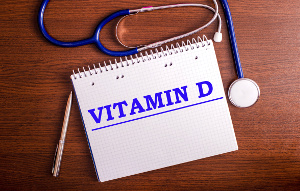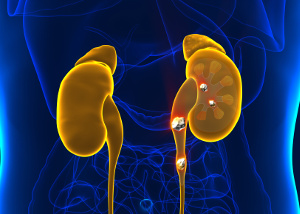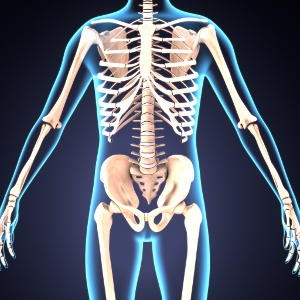afterLoad (456.3KB) (697μs)
afterInitialise (1.27MB) (49.7ms)
afterRoute (827.66KB) (17.89ms)
beforeRenderComponent com_content (35.02KB) (228μs)
Before Access::preloadComponents (all components) (67.27KB) (3.96ms)
After Access::preloadComponents (all components) (98.07KB) (2.68ms)
Before Access::preloadPermissions (com_content) (1.6KB) (9μs)
After Access::preloadPermissions (com_content) (3.29MB) (25.81ms)
Before Access::getAssetRules (id:62 name:com_content.category.20) (130.65KB) (87μs)
After Access::getAssetRules (id:62 name:com_content.category.20) (7.38KB) (852μs)
Before Access::getAssetRules (id:8 name:com_content) (51.77KB) (46.83ms)
After Access::getAssetRules (id:8 name:com_content) (6.17KB) (37μs)
afterRenderComponent com_content (1.52MB) (225ms)
afterDispatch (32.39KB) (3.67ms)
beforeRenderRawModule mod_articles_category (READ MORE...) (398.66KB) (14.53ms)
afterRenderRawModule mod_articles_category (READ MORE...) (65.61KB) (155ms)
beforeRenderRawModule mod_custom (BOOST YOUR IMMUNE DEFENSE) (6.45KB) (28μs)
afterRenderRawModule mod_custom (BOOST YOUR IMMUNE DEFENSE) (4.42KB) (172μs)
beforeRenderRawModule mod_articles_latest (Latest news) (976B) (14μs)
afterRenderRawModule mod_articles_latest (Latest news) (51.31KB) (116ms)
beforeRenderRawModule mod_tags_popular (Search) (2.09KB) (25μs)
afterRenderRawModule mod_tags_popular (Search) (27.53KB) (74.81ms)
beforeRenderRawModule mod_custom (the Vitamin and Mineral Guide) (960B) (26μs)
afterRenderRawModule mod_custom (the Vitamin and Mineral Guide) (1.02KB) (42μs)
beforeRenderRawModule mod_custom (Weight loss that works) (736B) (12μs)
afterRenderRawModule mod_custom (Weight loss that works) (928B) (23μs)
beforeRenderRawModule mod_custom (Get additionel and more detailed knowledge ) (752B) (10μs)
afterRenderRawModule mod_custom (Get additionel and more detailed knowledge ) (944B) (19μs)
beforeRenderRawModule mod_custom (Q10 goes by many names) (736B) (9μs)
afterRenderRawModule mod_custom (Q10 goes by many names) (928B) (18μs)
beforeRenderRawModule mod_custom (Check this before you buy a Q10 product) (752B) (9μs)
afterRenderRawModule mod_custom (Check this before you buy a Q10 product) (944B) (17μs)
beforeRenderRawModule mod_custom (Are you taking supplements) (736B) (9μs)
afterRenderRawModule mod_custom (Are you taking supplements) (2.28KB) (53μs)
beforeRenderRawModule mod_custom (Antiaging) (720B) (10μs)
afterRenderRawModule mod_custom (Antiaging) (912B) (18μs)
beforeRenderRawModule mod_custom (Exercise) (720B) (8μs)
afterRenderRawModule mod_custom (Exercise) (912B) (17μs)
beforeRenderRawModule mod_custom (Useful Links) (720B) (9μs)
afterRenderRawModule mod_custom (Useful Links) (1.02KB) (19μs)
beforeRenderModule mod_articles_category (READ MORE...) (268.2KB) (3.39ms)
afterRenderModule mod_articles_category (READ MORE...) (1.25KB) (53μs)
beforeRenderModule mod_custom (BOOST YOUR IMMUNE DEFENSE) (6.81KB) (15μs)
afterRenderModule mod_custom (BOOST YOUR IMMUNE DEFENSE) (1.28KB) (25μs)
beforeRenderModule mod_articles_latest (Latest news) (592B) (11μs)
afterRenderModule mod_articles_latest (Latest news) (1.27KB) (21μs)
beforeRenderModule mod_tags_popular (Search) (1.73KB) (11μs)
afterRenderModule mod_tags_popular (Search) (1.27KB) (20μs)
beforeRenderModule mod_custom (the Vitamin and Mineral Guide) (1.31KB) (9μs)
afterRenderModule mod_custom (the Vitamin and Mineral Guide) (1.28KB) (19μs)
beforeRenderModule mod_custom (Weight loss that works) (336B) (9μs)
afterRenderModule mod_custom (Weight loss that works) (1.27KB) (19μs)
beforeRenderModule mod_custom (Get additionel and more detailed knowledge ) (368B) (9μs)
afterRenderModule mod_custom (Get additionel and more detailed knowledge ) (1.3KB) (19μs)
beforeRenderModule mod_custom (Q10 goes by many names) (336B) (8μs)
afterRenderModule mod_custom (Q10 goes by many names) (1.27KB) (19μs)
beforeRenderModule mod_custom (Check this before you buy a Q10 product) (352B) (8μs)
afterRenderModule mod_custom (Check this before you buy a Q10 product) (1.28KB) (19μs)
beforeRenderModule mod_custom (Are you taking supplements) (352B) (9μs)
afterRenderModule mod_custom (Are you taking supplements) (1.28KB) (18μs)
beforeRenderModule mod_custom (Antiaging) (336B) (9μs)
afterRenderModule mod_custom (Antiaging) (1.27KB) (19μs)
beforeRenderModule mod_custom (Exercise) (336B) (8μs)
afterRenderModule mod_custom (Exercise) (1.25KB) (19μs)
beforeRenderModule mod_custom (Useful Links) (336B) (9μs)
afterRenderModule mod_custom (Useful Links) (3.77KB) (29μs)
beforeRenderRawModule mod_menu (Main Menu - English) (37.51KB) (883μs)
afterRenderRawModule mod_menu (Main Menu - English) (190.16KB) (1.57ms)
beforeRenderModule mod_menu (Main Menu - English) (720B) (5μs)
afterRenderModule mod_menu (Main Menu - English) (4.86KB) (49μs)
beforeRenderRawModule mod_languages (Sprogskift) (3.94KB) (17μs)
afterRenderRawModule mod_languages (Sprogskift) (21.84KB) (1.5ms)
beforeRenderModule mod_languages (Sprogskift) (720B) (5μs)
afterRenderModule mod_languages (Sprogskift) (5.31KB) (21μs)
beforeRenderRawModule mod_finder () (6.34KB) (11μs)
afterRenderRawModule mod_finder () (132.96KB) (1.64ms)
beforeRenderModule mod_finder () (704B) (5μs)
afterRenderModule mod_finder () (3.29KB) (34μs)
beforeRenderRawModule mod_custom () (6.62KB) (143μs)
afterRenderRawModule mod_custom () (26.52KB) (837μs)
beforeRenderModule mod_custom () (704B) (5μs)
afterRenderModule mod_custom () (1.23KB) (47μs)
beforeRenderRawModule mod_menu (Main Menu - English) (5.07KB) (105μs)
afterRenderRawModule mod_menu (Main Menu - English) (6.3KB) (759μs)
beforeRenderModule mod_menu (Main Menu - English) (720B) (4μs)
afterRenderModule mod_menu (Main Menu - English) (1.25KB) (42μs)
beforeRenderRawModule mod_languages (Sprogskift Mobil) (912B) (16μs)
afterRenderRawModule mod_languages (Sprogskift Mobil) (3.89KB) (669μs)
beforeRenderModule mod_languages (Sprogskift Mobil) (720B) (3μs)
afterRenderModule mod_languages (Sprogskift Mobil) (1.27KB) (29μs)
beforeRenderRawModule mod_finder () (2.3KB) (9μs)
afterRenderRawModule mod_finder () (6.29KB) (531μs)
beforeRenderModule mod_finder () (704B) (4μs)
afterRenderModule mod_finder () (1.23KB) (41μs)
beforeRenderRawModule mod_custom () (8.66KB) (597μs)
afterRenderRawModule mod_custom () (904B) (137μs)
beforeRenderModule mod_custom () (704B) (3μs)
afterRenderModule mod_custom () (2.43KB) (24μs)
beforeRenderRawModule mod_custom () (688B) (83μs)
afterRenderRawModule mod_custom () (896B) (99μs)
beforeRenderModule mod_custom () (704B) (3μs)
afterRenderModule mod_custom () (2.71KB) (23μs)
afterRender (305.38KB) (6.55ms)
| 1 x afterRenderComponent com_content (1.52MB) (29.68%) | 225.44ms |
| 1 x afterRenderRawModule mod_articles_category (READ MORE...) (65.61KB) (20.36%) | 154.63ms |
| 1 x afterRenderRawModule mod_articles_latest (Latest news) (51.31KB) (15.33%) | 116.45ms |
| 1 x afterRenderRawModule mod_tags_popular (Search) (27.53KB) (9.85%) | 74.81ms |
| 1 x afterInitialise (1.27MB) (6.54%) | 49.70ms |
| 1 x Before Access::getAssetRules (id:8 name:com_content) (51.77KB) (6.17%) | 46.83ms |
| 1 x After Access::preloadPermissions (com_content) (3.29MB) (3.4%) | 25.81ms |
| 1 x afterRoute (827.66KB) (2.36%) | 17.89ms |
| 1 x beforeRenderRawModule mod_articles_category (READ MORE...) (398.66KB) (1.91%) | 14.53ms |
| 1 x afterRender (305.38KB) (0.86%) | 6.55ms |
| 1 x Before Access::preloadComponents (all components) (67.27KB) (0.52%) | 3.96ms |
| 1 x afterDispatch (32.39KB) (0.48%) | 3.67ms |
| 1 x beforeRenderModule mod_articles_category (READ MORE...) (268.2KB) (0.45%) | 3.39ms |
| 1 x After Access::preloadComponents (all components) (98.07KB) (0.35%) | 2.68ms |
| 1 x afterRenderRawModule mod_finder () (132.96KB) (0.22%) | 1.64ms |
| 1 x afterRenderRawModule mod_menu (Main Menu - English) (190.16KB) (0.21%) | 1.57ms |
| 1 x afterRenderRawModule mod_languages (Sprogskift) (21.84KB) (0.2%) | 1.50ms |
| 1 x beforeRenderRawModule mod_menu (Main Menu - English) (37.51KB) (0.12%) | 883μs |
| 1 x After Access::getAssetRules (id:62 name:com_content.category.20) (7.38KB) (0.11%) | 852μs |
| 1 x afterRenderRawModule mod_custom () (26.52KB) (0.11%) | 837μs |
| 1 x afterRenderRawModule mod_menu (Main Menu - English) (6.3KB) (0.1%) | 759μs |
| 1 x afterLoad (456.3KB) (0.09%) | 697μs |
| 1 x afterRenderRawModule mod_languages (Sprogskift Mobil) (3.89KB) (0.09%) | 669μs |
| 1 x beforeRenderRawModule mod_custom () (8.66KB) (0.08%) | 597μs |
| 1 x afterRenderRawModule mod_finder () (6.29KB) (0.07%) | 531μs |
| 1 x beforeRenderComponent com_content (35.02KB) (0.03%) | 228μs |
| 1 x afterRenderRawModule mod_custom (BOOST YOUR IMMUNE DEFENSE) (4.42KB) (0.02%) | 172μs |
| 1 x beforeRenderRawModule mod_custom () (6.62KB) (0.02%) | 143μs |
| 1 x afterRenderRawModule mod_custom () (904B) (0.02%) | 137μs |
| 1 x beforeRenderRawModule mod_menu (Main Menu - English) (5.07KB) (0.01%) | 105μs |
| 1 x afterRenderRawModule mod_custom () (896B) (0.01%) | 99μs |
| 1 x Before Access::getAssetRules (id:62 name:com_content.category.20) (130.65KB) (0.01%) | 87μs |
| 1 x beforeRenderRawModule mod_custom () (688B) (0.01%) | 83μs |
| 1 x afterRenderRawModule mod_custom (Are you taking supplements) (2.28KB) (0.01%) | 53μs |
| 1 x afterRenderModule mod_articles_category (READ MORE...) (1.25KB) (0.01%) | 53μs |
| 1 x afterRenderModule mod_menu (Main Menu - English) (4.86KB) (0.01%) | 49μs |
| 1 x afterRenderModule mod_custom () (1.23KB) (0.01%) | 47μs |
| 1 x afterRenderRawModule mod_custom (the Vitamin and Mineral Guide) (1.02KB) (0.01%) | 42μs |
| 1 x afterRenderModule mod_menu (Main Menu - English) (1.25KB) (0.01%) | 42μs |
| 1 x afterRenderModule mod_finder () (1.23KB) (0.01%) | 41μs |
| 1 x After Access::getAssetRules (id:8 name:com_content) (6.17KB) (0%) | 37μs |
| 1 x afterRenderModule mod_finder () (3.29KB) (0%) | 34μs |
| 1 x afterRenderModule mod_languages (Sprogskift Mobil) (1.27KB) (0%) | 29μs |
| 1 x afterRenderModule mod_custom (Useful Links) (3.77KB) (0%) | 29μs |
| 1 x beforeRenderRawModule mod_custom (BOOST YOUR IMMUNE DEFENSE) (6.45KB) (0%) | 28μs |
| 1 x beforeRenderRawModule mod_custom (the Vitamin and Mineral Guide) (960B) (0%) | 26μs |
| 1 x beforeRenderRawModule mod_tags_popular (Search) (2.09KB) (0%) | 25μs |
| 1 x afterRenderModule mod_custom (BOOST YOUR IMMUNE DEFENSE) (1.28KB) (0%) | 25μs |
| 1 x afterRenderModule mod_custom () (2.43KB) (0%) | 24μs |
| 1 x afterRenderModule mod_custom () (2.71KB) (0%) | 23μs |
| 1 x afterRenderRawModule mod_custom (Weight loss that works) (928B) (0%) | 23μs |
| 1 x afterRenderModule mod_articles_latest (Latest news) (1.27KB) (0%) | 21μs |
| 1 x afterRenderModule mod_languages (Sprogskift) (5.31KB) (0%) | 21μs |
| 1 x afterRenderModule mod_tags_popular (Search) (1.27KB) (0%) | 20μs |
| 1 x afterRenderRawModule mod_custom (Get additionel and more detailed knowledge ) (944B) (0%) | 19μs |
| 1 x afterRenderRawModule mod_custom (Useful Links) (1.02KB) (0%) | 19μs |
| 1 x afterRenderModule mod_custom (the Vitamin and Mineral Guide) (1.28KB) (0%) | 19μs |
| 1 x afterRenderModule mod_custom (Weight loss that works) (1.27KB) (0%) | 19μs |
| 1 x afterRenderModule mod_custom (Q10 goes by many names) (1.27KB) (0%) | 19μs |
| 1 x afterRenderModule mod_custom (Check this before you buy a Q10 product) (1.28KB) (0%) | 19μs |
| 1 x afterRenderModule mod_custom (Antiaging) (1.27KB) (0%) | 19μs |
| 1 x afterRenderModule mod_custom (Exercise) (1.25KB) (0%) | 19μs |
| 1 x afterRenderModule mod_custom (Get additionel and more detailed knowledge ) (1.3KB) (0%) | 19μs |
| 1 x afterRenderRawModule mod_custom (Antiaging) (912B) (0%) | 18μs |
| 1 x afterRenderRawModule mod_custom (Q10 goes by many names) (928B) (0%) | 18μs |
| 1 x afterRenderModule mod_custom (Are you taking supplements) (1.28KB) (0%) | 18μs |
| 1 x afterRenderRawModule mod_custom (Exercise) (912B) (0%) | 17μs |
| 1 x afterRenderRawModule mod_custom (Check this before you buy a Q10 product) (944B) (0%) | 17μs |
| 1 x beforeRenderRawModule mod_languages (Sprogskift) (3.94KB) (0%) | 17μs |
| 1 x beforeRenderRawModule mod_languages (Sprogskift Mobil) (912B) (0%) | 16μs |
| 1 x beforeRenderModule mod_custom (BOOST YOUR IMMUNE DEFENSE) (6.81KB) (0%) | 15μs |
| 1 x beforeRenderRawModule mod_articles_latest (Latest news) (976B) (0%) | 14μs |
| 1 x beforeRenderRawModule mod_custom (Weight loss that works) (736B) (0%) | 12μs |
| 1 x beforeRenderRawModule mod_finder () (6.34KB) (0%) | 11μs |
| 1 x beforeRenderModule mod_articles_latest (Latest news) (592B) (0%) | 11μs |
| 1 x beforeRenderModule mod_tags_popular (Search) (1.73KB) (0%) | 11μs |
| 3 x beforeRenderModule mod_custom () (704B) (0%) | 11μs |
| 1 x beforeRenderRawModule mod_custom (Get additionel and more detailed knowledge ) (752B) (0%) | 10μs |
| 1 x beforeRenderRawModule mod_custom (Antiaging) (720B) (0%) | 10μs |
| 1 x Before Access::preloadPermissions (com_content) (1.6KB) (0%) | 9μs |
| 1 x beforeRenderRawModule mod_custom (Q10 goes by many names) (736B) (0%) | 9μs |
| 1 x beforeRenderRawModule mod_custom (Check this before you buy a Q10 product) (752B) (0%) | 9μs |
| 1 x beforeRenderRawModule mod_custom (Are you taking supplements) (736B) (0%) | 9μs |
| 1 x beforeRenderModule mod_custom (the Vitamin and Mineral Guide) (1.31KB) (0%) | 9μs |
| 1 x beforeRenderModule mod_custom (Get additionel and more detailed knowledge ) (368B) (0%) | 9μs |
| 1 x beforeRenderModule mod_custom (Are you taking supplements) (352B) (0%) | 9μs |
| 1 x beforeRenderModule mod_custom (Antiaging) (336B) (0%) | 9μs |
| 1 x beforeRenderModule mod_custom (Useful Links) (336B) (0%) | 9μs |
| 2 x beforeRenderModule mod_menu (Main Menu - English) (720B) (0%) | 9μs |
| 2 x beforeRenderModule mod_finder () (704B) (0%) | 9μs |
| 1 x beforeRenderRawModule mod_finder () (2.3KB) (0%) | 9μs |
| 1 x beforeRenderRawModule mod_custom (Useful Links) (720B) (0%) | 9μs |
| 1 x beforeRenderModule mod_custom (Weight loss that works) (336B) (0%) | 9μs |
| 1 x beforeRenderModule mod_custom (Q10 goes by many names) (336B) (0%) | 8μs |
| 1 x beforeRenderRawModule mod_custom (Exercise) (720B) (0%) | 8μs |
| 1 x beforeRenderModule mod_custom (Check this before you buy a Q10 product) (352B) (0%) | 8μs |
| 1 x beforeRenderModule mod_custom (Exercise) (336B) (0%) | 8μs |
| 1 x beforeRenderModule mod_languages (Sprogskift) (720B) (0%) | 5μs |
| 1 x beforeRenderModule mod_languages (Sprogskift Mobil) (720B) (0%) | 3μs |
 When it comes to battling COVID-19, the main focus is on hygiene, face masks, lockdown, and delayed vaccines. For several months, scientists have urged people to take vitamin D supplements during the winter period as a way of preventing new waves of COVID-19. This is because vitamin D is of vital importance for a well-functioning immune system and it is known that deficiencies of this nutrient contribute to the spread of seasonal virus infections. We also see that groups of people that are most likely to be vitamin D-deficient – including seniors, nursing home residents, people with dark skin, overweight individuals, diabetics, and those with chronic diseases – are most vulnerable towards COVID-19. The British government is already handing out vitamin D supplements to exposed groups, according to an article in Daily Mail and a review article that is published in British Medical Journal. But why is vitamin D so important for the immune defense, why are some people more likely to become deficient, and how much vitamin D do we actually need? Also, will vaccines cut the mustard if COVID-19 mutates?
When it comes to battling COVID-19, the main focus is on hygiene, face masks, lockdown, and delayed vaccines. For several months, scientists have urged people to take vitamin D supplements during the winter period as a way of preventing new waves of COVID-19. This is because vitamin D is of vital importance for a well-functioning immune system and it is known that deficiencies of this nutrient contribute to the spread of seasonal virus infections. We also see that groups of people that are most likely to be vitamin D-deficient – including seniors, nursing home residents, people with dark skin, overweight individuals, diabetics, and those with chronic diseases – are most vulnerable towards COVID-19. The British government is already handing out vitamin D supplements to exposed groups, according to an article in Daily Mail and a review article that is published in British Medical Journal. But why is vitamin D so important for the immune defense, why are some people more likely to become deficient, and how much vitamin D do we actually need? Also, will vaccines cut the mustard if COVID-19 mutates?







 Migraine is a chronic neurological disorder that can ruin your quality of life and cost you many sick days. Migraine medicine does not necessarily work for all patients and many people get side effects. Therefore, prevention is a better strategy. According to a new study published in Nutrition Journal, zinc supplements have the potential to significantly reduce the frequency of migraine headaches. You can also read about two other nutrients that reduce the frequency and severity of migraine attacks and what it is that triggers them. The most important thing is to find and address the different causes. Diet and lifestyle have a profound impact.
Migraine is a chronic neurological disorder that can ruin your quality of life and cost you many sick days. Migraine medicine does not necessarily work for all patients and many people get side effects. Therefore, prevention is a better strategy. According to a new study published in Nutrition Journal, zinc supplements have the potential to significantly reduce the frequency of migraine headaches. You can also read about two other nutrients that reduce the frequency and severity of migraine attacks and what it is that triggers them. The most important thing is to find and address the different causes. Diet and lifestyle have a profound impact.
 Pancreatic cancer remains one of the deadliest cancers even with improved therapies. Because many people are diagnosed too late and the prognoses are generally poor it is essential to focus a lot more on prevention for instance by striving to maintain normal weight and avoiding smoking. According to a new meta-analysis published in Nutrition Journal, it appears that large quantities of
Pancreatic cancer remains one of the deadliest cancers even with improved therapies. Because many people are diagnosed too late and the prognoses are generally poor it is essential to focus a lot more on prevention for instance by striving to maintain normal weight and avoiding smoking. According to a new meta-analysis published in Nutrition Journal, it appears that large quantities of  The rate of eating disturbances among children, teenagers, and adults has increased in the past year. Health authorities typically focus on cultural and psychosocial causes and therapies, but the treatments often drag out and are inadequate. What is equally important is to look at whether the patients lack essential nutrients that are important for the brain, the nervous system, the appetite, and the sense of smell and taste. Clinical research from the past decades has shown that anorexia and bulimia in particular can often be treated with zinc and various other nutrients, while chromium is important for maintaining stable blood sugar. The use of the right supplements combined with different therapy forms may therefore be the right way to obtain permanent results.
The rate of eating disturbances among children, teenagers, and adults has increased in the past year. Health authorities typically focus on cultural and psychosocial causes and therapies, but the treatments often drag out and are inadequate. What is equally important is to look at whether the patients lack essential nutrients that are important for the brain, the nervous system, the appetite, and the sense of smell and taste. Clinical research from the past decades has shown that anorexia and bulimia in particular can often be treated with zinc and various other nutrients, while chromium is important for maintaining stable blood sugar. The use of the right supplements combined with different therapy forms may therefore be the right way to obtain permanent results. Kidney stones can be extremely painful, and there is a rather large risk that they reoccur at a later time. What you eat means a lot and your diet is therefore an important key to prevention. It is important to get plenty of
Kidney stones can be extremely painful, and there is a rather large risk that they reoccur at a later time. What you eat means a lot and your diet is therefore an important key to prevention. It is important to get plenty of  Older people with a high intake of
Older people with a high intake of  Chronic low-grade inflammation has a negative effect on our health. It pummels the body with free radical damage to healthy cells and tissue. Chronic low-grade inflammation is linked to ageing, overweight, type 2 diabetes, cardiovascular disease, and other health problems. In the case of infections, there is also a risk that the immune defense overreacts with hyperinflammation, which can turn out to be very problematic. Now, science has discovered that our gut flora also affects the immune system. Some gut bacteria have a pro-inflammatory effect, while others help fight inflammation. Fish oil’s anti-inflammatory effect involves other mechanisms. Supplements of beneficial gut bacteria, better known as probiotics, and fish oil supplements help increase gut flora diversity. This is good for fighting inflammation, according to a new study published in Nutrients. Another thing to make sure of is to get enough vitamin D.
Chronic low-grade inflammation has a negative effect on our health. It pummels the body with free radical damage to healthy cells and tissue. Chronic low-grade inflammation is linked to ageing, overweight, type 2 diabetes, cardiovascular disease, and other health problems. In the case of infections, there is also a risk that the immune defense overreacts with hyperinflammation, which can turn out to be very problematic. Now, science has discovered that our gut flora also affects the immune system. Some gut bacteria have a pro-inflammatory effect, while others help fight inflammation. Fish oil’s anti-inflammatory effect involves other mechanisms. Supplements of beneficial gut bacteria, better known as probiotics, and fish oil supplements help increase gut flora diversity. This is good for fighting inflammation, according to a new study published in Nutrients. Another thing to make sure of is to get enough vitamin D. A large Israeli population study of over 4.6 million people shows that lack of sunshine and
A large Israeli population study of over 4.6 million people shows that lack of sunshine and 
 The number of seniors in the world is growing steadily which means a surge in problems like cardiovascular disease, cancer, respiratory illnesses, overweight, diabetes, rheumatism, dementia, and Alzheimer’s disease. These diseases that have a widespread impact on human lives and are a burden to society are often linked to chronic inflammation. A group of scientists therefore decided to look closer at studies that have found a positive effect of the omega-3 fatty acids EPA and DHA on cognitive functioning, maintenance of muscle mass, and prevention and treatment of a host of serious diseases that are related to ageing. It is vital to start supplementing early and to take the right doses, according to the new review article published in Nutrients.
The number of seniors in the world is growing steadily which means a surge in problems like cardiovascular disease, cancer, respiratory illnesses, overweight, diabetes, rheumatism, dementia, and Alzheimer’s disease. These diseases that have a widespread impact on human lives and are a burden to society are often linked to chronic inflammation. A group of scientists therefore decided to look closer at studies that have found a positive effect of the omega-3 fatty acids EPA and DHA on cognitive functioning, maintenance of muscle mass, and prevention and treatment of a host of serious diseases that are related to ageing. It is vital to start supplementing early and to take the right doses, according to the new review article published in Nutrients. Periodontal is the leading global cause of tooth loss. It is a problem to prevent and to treat this condition because large population groups are neither able to nor used to taking proper care of their teeth and because it is expensive to see a dentist. A group of Australian scientists have decided to take a closer look at vitamin C’s role in dental health and determine how important it is to get enough vitamin C from the diet and from supplements. Another substance is important for preventing periodontal disease. You can read more about that in the article.
Periodontal is the leading global cause of tooth loss. It is a problem to prevent and to treat this condition because large population groups are neither able to nor used to taking proper care of their teeth and because it is expensive to see a dentist. A group of Australian scientists have decided to take a closer look at vitamin C’s role in dental health and determine how important it is to get enough vitamin C from the diet and from supplements. Another substance is important for preventing periodontal disease. You can read more about that in the article.